Copyright 2022 by The University of Arkansas Press. All rights reserved. No part of this book should be used or reproduced in any manner without prior permission in writing from the University of Arkansas Press or as expressly permitted by law.
ISBN: 978-1-68226-189-7
eISBN: 978-1-61075-761-4
26 25 24 23 22 5 4 3 2 1
Manufactured in the United States of America
Designed by Liz Lester
 The paper used in this publication meets the minimum requirements of the American National Standard for Permanence of Paper for Printed Library Materials Z39.48-1984.
The paper used in this publication meets the minimum requirements of the American National Standard for Permanence of Paper for Printed Library Materials Z39.48-1984.
Library of Congress Cataloging-in-Publication Data
Names: Scott, Terry Anne, author.
Title: Lynching and leisure: race and the transformation of mob violence in Texas / Terry Anne Scott.
Description: Fayetteville: University of Arkansas Press, 2022. | Includes appendix: List of lynching victims in Texas, 18661942. Data table includes date, name, race, gender, city, county, alleged crime, mode of death, size of mob. | Includes bibliographical references and index. | Summary: Comprehensive study that traces how lynchings in Texas evolved from largely clandestine acts into racialized recreation in which crowd involvement became integral to the atrocities committedProvided by publisher.
Identifiers: LCCN 2021029513 (print) | LCCN 2021029514 (ebook) | ISBN 9781682261897 (cloth; alkaline paper) | ISBN 9781610757614 (ebook)
Subjects: LCSH: LynchingTexasHistory19th century. | LynchingTexasHistory20th century. | LynchingSocial aspectsTexas. | African AmericansViolence againstTexasHistory. | LeisureHistory. | TexasRace relationsHistory.
Classification: LCC HV6465.T4 S46 2022 (print) | LCC HV6465.T4 (ebook) | DDC 364.1/34dc23
LC record available at https://lccn.loc.gov/2021029513
LC ebook record available at https://lccn.loc.gov/2021029514
For Warren, Ezri, Oni, Zahar, and Mom
ACKNOWLEDGMENTS
I was born into a family, both immediate and extended, in which success was measured not by the expanse of ones coffers, but instead by ones ability to create and accomplish goals that positively impact our surrounding communities. The capacity to produce meaningful publications and teach others about the history of an extraordinary people certainly fits within my familys matrix for success. I thereby owe an immeasurable debt of gratitude to my parents, William and Micheline Schulte, for teaching me that no goal is out of reach, and that all goals should leave the world a better place. They instilled in me the unrelenting value of hard work, dedication, and love. I thank them for their many sacrifices and their unconditional love. I thank them for making all things possible and for allowing me to wholly believe that anything can be accomplished. I also thank them for teaching me to respect and help the least among us. My driven, talented, amazing brother, Ricky, would have lauded this work as the most masterful, awe-inspiring study ever completed in any disciplinenot because it is so, but simply because I produced it. I was his infallible little sister. Everyone should have such a person in his/her/their corner. I know he is still in mine. I thank my little brother, Matthew, for his unequivocal support and encouragement, his well-timed gifts of levity in the midst of some otherwise tense moments, and his continuous ability to suggest just the right book or writer. Thank you to AJ and Jordyn for their continued support and pride, their enduring enthusiasm for all things creative and intellectual, and for the utter joy that they bring to our lives. I also thank AJ for his help with formatting issues. I thank my loving Aunt Janine for her constant support and joy in my accomplishments. She, together with Aunt Marie Jose, Angie, Jessica, and Joelle are truly appreciated for serving as incredible examples of determination, integrity, and generosity of spirit. They have shown me how to successfully and gracefully balance the demands of ones family and ones professional life. Their love, cheering, and support are true, unrelenting gifts. I would also like to extend a heartfelt thank you to the amazing Tracee, who has been an official promoter at all the right times. I also want to greatly thank Malinda, Audrey, Stephanie, Teyanna, and Tricia. Each of these women is truly inspirational. Their support and friendship have been incredibly appreciated.
Many magnificent, supportive archivists, librarians, and scholars have helped bring this work to fruition. I thank the many individuals at repositories and libraries across the country who have provided me with documents and direction that have proven imminently useful. Thank you to the staff at the University of Arkansas Press, especially Jenny Vos and David Scott Cunningham, for all of your help in making this manuscript into a book. I am grateful to archivists and librarians at the Dallas Public Library in Dallas, Texas and to Walter Hill at the National Archives in College Park, Maryland. I am grateful to Dr. Marsha Prior and Dr. Graham Haslam for their support and encouragement. Thank you as well to my colleagues in the Department of History at Hood College. A special thanks to Dr. Emilie Amt for our many conversations related to this work. Dr. Dennis Cordell, Dr. Edward Countryman, and Dr. Kenneth Hamilton at Southern Methodist University are worthy of commendation for their passion for teaching and the examples that they set for aspiring scholars. They all encouraged and ignited intellectual curiosity among their students, and they personified the joy inherent in teaching. Dr. Hamilton taught me early in my career the value of exploring how African Americans conquered seemingly insurmountable obstacles to determine the trajectory of their lives. I owe an incredible debt of gratitude to the faculty and staff in the Department of History at the University of Chicago. They have lent both intellectual and practical support during this process. Ellen Wu provided much need encouragement and laughter as we waded through the challenges and delights of graduate education. It was in Dr. Neil Harriss class that the idea for this study was born. I am particularly indebted to Dr. Julie Saville and Dr. Thomas Holt at the University of Chicago. Dr. Savilles encouraging, careful reading of this study helped immeasurably as I worked to sharpen my arguments. I thank her for her encouragement and insight. My advisor and mentor, Dr. Thomas Holt, has been a true inspiration. He supported and honed my ideas since the very beginning, even when others thought leisure and lynching should not be mentioned together. I thank him for his incredible breadth of knowledge, his generosity of time, and his constant and invaluable feedback as he read the many drafts of this work. His extensive insight and comments have been immensely valuable, and I am honored to have been able to learn from him.
My husband, Warren Earl Scott, II, and my daughters, Ezri, Oni, and Zahar, have expressed a level of pride and happiness for me that would fill the deepest of the Earths crevasses. This endorsement, this proverbial high-five, is invaluable. Girls, you are all incredibly intelligent, beautiful,compassionate souls who have imbued my life with a joy and meaning that must be tantamount to Heaven. I am so proud of you. Imagine the world in which you desire to exist and then create it. It can be done. Ezri and Oni, thank you also for helping to research aspects of this book. Our trip to Austin, Texas, will forever be remembered and adored. Warren, you have been on this journey with me since we sat on a bench together outside the student center and debated the merits of Frederick Douglasss work. Thank you for accompanying me to varied libraries and repositories. Thank you for reading my drafts and reminding me when needed about the importance of this work. Thank you for your vital insight. Thank you for believing in me when others thought my tasks impossible. Thank you for making the everyday extraordinary.

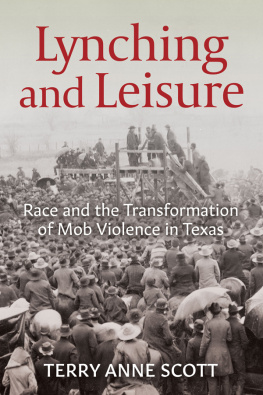
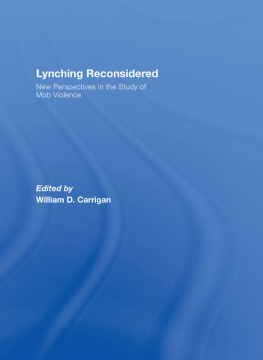
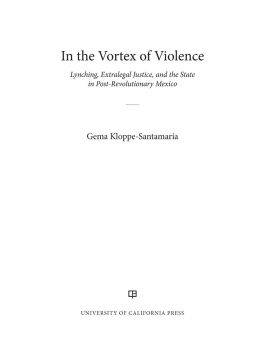

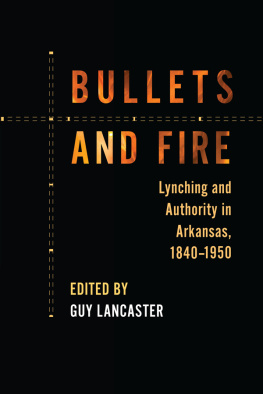
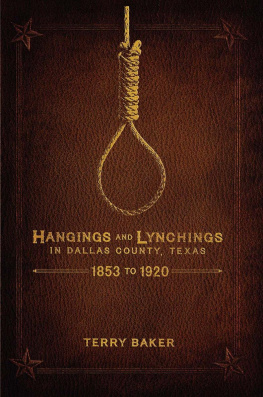
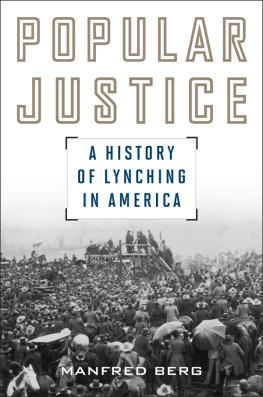

 The paper used in this publication meets the minimum requirements of the American National Standard for Permanence of Paper for Printed Library Materials Z39.48-1984.
The paper used in this publication meets the minimum requirements of the American National Standard for Permanence of Paper for Printed Library Materials Z39.48-1984.